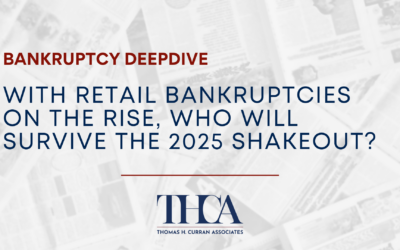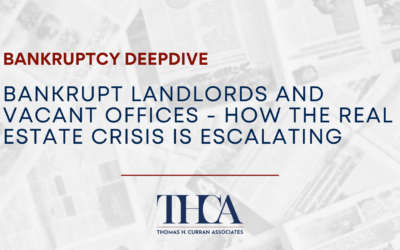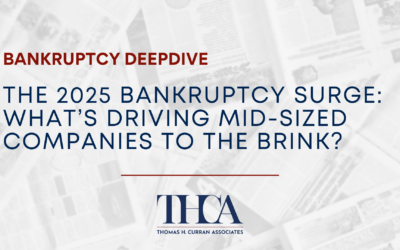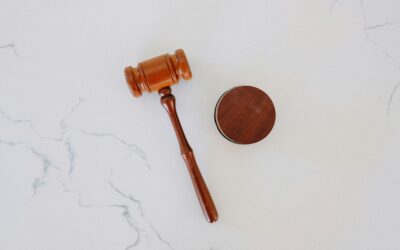Chapter 13 Personal Bankruptcy Attorney
Chapter 13 bankruptcy allows individuals that have a regular income to implement a plan to repay a portion of their debts without forfeiting many of their assets. Under a Chapter 13 plan, debtors propose to repay creditors using their disposable income over three to five years in return for a discharge of any other unpaid unsecured debts.
Chapter 13 bankruptcy, along with Chapter 7 bankruptcy, is one of the two most common forms of personal bankruptcy employed by individuals seeking to reduce or eliminate their unsecured debt obligations. Unsecured debt is not backed by the borrower’s collateral and is generally issued based solely on the borrower’s creditworthiness. Secured debt refers to loans where the borrower uses an asset as collateral for the loan.
Chapter 7 is a liquidation bankruptcy and quickly wipes out most of the debtor’s unsecured debts, including credit cards and medical bills, without implementing a repayment plan. However, in a Chapter 7 proceeding, a bankruptcy trustee will likely sell all of the debtor’s property that is not exempted from the bankruptcy estate and use the proceeds to repay creditors. Additionally, Chapter 7 bankruptcy does not eliminate secured debts like mortgages or property liens and debtors sometimes end up losing their homes. Finally, debtors with high levels of income may not qualify for Chapter 7 bankruptcy.
Chapter 13 bankruptcy offers debtors a number of advantages over Chapter 7—one of the most significant being the opportunity for the debtors to save their homes from foreclosure. Debtors may use Chapter 13 bankruptcy to stop foreclosure proceedings, cure delinquent mortgage or other secured debt payments, or reduce the monthly payments. Nevertheless, Chapter 13 debtors may still lose their home if they fail to keep current on their mortgage payments, even if they were modified under the repayment plan. Chapter 13 debtors may also reduce or extend the payments on their other secured debts so they are paid over the course the repayment plan.
Any individual or married couple is eligible to seek relief under Chapter 13 bankruptcy, even those who are self-employed, so long as their debts do not exceed certain levels. If the debtor is an individual with large or complex debts, or debts in excess of the amounts allowed under Chapter 13, a Chapter 11 reorganization bankruptcy may be a better option.
A Chapter 13 proceeding is usually initiated by the debtor’s filing of a petition with the Bankruptcy Court. As in Chapter 7 bankruptcies, the filing of a Chapter 13 petition will result in an automatic stay that stops creditors from collecting their debts and stops most other litigation against the debtor. An additional benefit of Chapter 13 bankruptcy is that the stay may also apply to co-debtors responsible for repaying the debtor’s loans. The Chapter 13 petition is usually accompanied by several other documents that help establish the debtor’s financial situation.
Within 15 days of filing a Chapter 13 petition, the debtor must file a plan for the Bankruptcy Court’s approval that details how he or she plans to repay creditors during the next three to five years. The plan must provide fixed regular payments to the bankruptcy trustee appointed to manage the bankruptcy estate after the petition was filed. If the plan is approved, the trustee will distribute funds to the creditors according to the plan terms. The debtor must start making payments required under the plan within 30 days of filing it, even if the plan has yet to be approved by the court.
One of the trustee’s responsibilities in a Chapter 13 proceeding is to organize a meeting of the creditors. The debtor must attend the meeting to answer questions regarding his or her financial situation and the terms of the proposed plan. Within 45 days of that meeting, the judge will hold a confirmation hearing to decide whether the plan is feasible and if it meets the standards laid out in the United States Bankruptcy Code. At the hearing, the creditors will have the opportunity to ask questions or object to the plan. If the plan is confirmed by the judge, the creditors are barred from taking any action against the debtor to collect their debts outside of the plan.
The Chapter 13 plan will group the claims of the creditors into three categories:
- Priority claims that include most taxes owed by the debtor and the costs of the bankruptcy proceedings;
- Secured claims where the creditor has the right to recover collateral if the debtor fails to repay a loan obligation; and
- Unsecured claims that have no special rights in bankruptcy.
The Chapter 13 repayment plan must pay all of the priority claims in full unless a priority creditor agrees otherwise. There is no requirement that unsecured claims be paid in full, so long as the repayment plan requires the debtor to turn all disposable income over to the trustee for distribution to the creditors. The plan must also provide that the unsecured creditors will receive at least as much as they would have if the debtor’s assets were liquidated under a Chapter 7 bankruptcy.
When a debtor has completed the Chapter 13 repayment plan, he or she is entitled to a discharge releasing him or her from all debts that were provided for or disallowed under the plan.
The proceedings in a Chapter 13 bankruptcy can be a complex undertaking and the experienced attorneys at Thomas H. Curran Associates can guide you through the process whether you are the debtor or a creditor. Our attorneys help clients to determine whether filing for Chapter 13 bankruptcy really is the best option for their personal situation and will help them draw up a repayment plan that ensures that clients fulfill their obligations while retaining as many of their assets as possible.
Bankruptcy Practice Results
Recent successful cases handled by the attorneys from Thomas H. Curran Associates. Find more here »
Supreme Court Denies Final Appeal, Finalizing Judgement Obtained by THCA
On June 24, 2024, the Supreme Court of the United States declined the petition to review filed by Sean Dunne and his ex-wife Gayle...
Thomas H. Curran Associates Secures Appellate Victory as Massachusetts Supreme Judicial Court Denies Appellant’s Attempt to Shortcut Ordinary Appellate Review
Thomas H. Curran Associates recently obtained an appellate victory in the Massachusetts Supreme Judicial Court on May 26, 2023, in the...
Thomas H. Curran Associates win is Affirmed in Florida, U.S. District Court – Client Wins Attorneys Fees
Law: Federal Rule of Civil Procedure 37(a)(5) Case: Premier Capital, LLC v. Larry Bryan (AP) Underlying Bankruptcy Case: In re Larry Bryan...
The Second Circuit Affirms Bankruptcy Fraud Judgment Obtained by Thomas H. Curran Associates, Recognizing the Continuous Concealment Doctrine
Law: Continuous concealment doctrine, 11 USC § 727(a)(2)(A), In re Olivier, 819 F.2d 550 (5th Cir. 1987); In re Boyer, 328 F. App’x 711,...
Thomas H. Curran Associates prevails on barring discharge due to fraud by debtor
Thomas H. Curran Associates recently secured a victory on behalf of an institutional asset manager, where the Bankruptcy Court for the...
Thomas H. Curran Associates prevails on post-trial motions and obtains full security for $23 million dollar financial fraud judgment on behalf of chapter 7 bankruptcy trustee
On February 8, 2022, the United States District Court for the District of Connecticut (Meyer, J.) enter its Order denying defendant Gayle...
Supreme Court Denies Final Appeal, Finalizing Judgement Obtained by THCA
On June 24, 2024, the Supreme Court of the United States declined the petition to review filed by Sean Dunne and his ex-wife Gayle...
Thomas H. Curran Associates Secures Appellate Victory as Massachusetts Supreme Judicial Court Denies Appellant’s Attempt to Shortcut Ordinary Appellate Review
Thomas H. Curran Associates recently obtained an appellate victory in the Massachusetts Supreme Judicial Court on May 26, 2023, in the...
Thomas H. Curran Associates win is Affirmed in Florida, U.S. District Court – Client Wins Attorneys Fees
Law: Federal Rule of Civil Procedure 37(a)(5) Case: Premier Capital, LLC v. Larry Bryan (AP) Underlying Bankruptcy Case: In re Larry Bryan...
The Second Circuit Affirms Bankruptcy Fraud Judgment Obtained by Thomas H. Curran Associates, Recognizing the Continuous Concealment Doctrine
Law: Continuous concealment doctrine, 11 USC § 727(a)(2)(A), In re Olivier, 819 F.2d 550 (5th Cir. 1987); In re Boyer, 328 F. App’x 711,...
Supreme Court Denies Final Appeal, Finalizing Judgement Obtained by THCA
On June 24, 2024, the Supreme Court of the United States declined the petition to review filed by Sean Dunne and his ex-wife Gayle...
Thomas H. Curran Associates Secures Appellate Victory as Massachusetts Supreme Judicial Court Denies Appellant’s Attempt to Shortcut Ordinary Appellate Review
Thomas H. Curran Associates recently obtained an appellate victory in the Massachusetts Supreme Judicial Court on May 26, 2023, in the...
Thomas H. Curran Associates win is Affirmed in Florida, U.S. District Court – Client Wins Attorneys Fees
Law: Federal Rule of Civil Procedure 37(a)(5) Case: Premier Capital, LLC v. Larry Bryan (AP) Underlying Bankruptcy Case: In re Larry Bryan...
Bankruptcy Areas of Expertise
- Bankruptcy Litigation
- Bankruptcy Trustee Representation
- Avoidance & Recovery Actions
- Chapter 11 Trustees & Examiners
- Discharge Litigation
- Bankruptcy Fraud Investigations
- Cross Border Foreign Litigation
- 363 Bankruptcy Sales
- Bankruptcy Preference Actions
- Involuntary Bankruptcy
- Chapter 11/13 Plan Objections
Bankruptcy News
With retail bankruptcies on the rise, who will survive the 2025 shakeout?
Bankruptcies reached an unprecedented level in 2024, and the trend appears to be continuing into this year. Some notable major retailers...
Bankrupt landlords and vacant offices – How the real estate crisis is escalating
Following the pandemic, a significant transformation in the corporate work structure was inevitable, especially for professionals...
The 2025 bankruptcy surge: What’s driving mid-sized companies to the brink?
A mere two months have passed since the beginning of 2025 and chapter 11 bankruptcy filings are already steadily trending upwards compared...
Evidence of Intent to ‘Hinder’ Wasn’t Sufficient to Deny Discharge, District Judge Says
In the recent case Wylie v. Miller, 22-10952 (S.D. Mich. March 29, 2024) [1] , a bankruptcy court’s decision to deny a couple’s discharge...
Creditor’s Don’t Receive Estate Assets Recovered After the Last Chapter 13 Plan Payment
In In re McCrorey, 18-00696 (Bankr. D. Idaho Jan. 26, 2024) [1] , Chief Bankruptcy Judge Noah G. Hillen of Boise, Idaho, held that if a...
Electric Scooter Company Bird files for Bankruptcy | CNBC
Bird, the popular electric scooter rental company filed for Chapter 11 bankruptcy protection in Florida Federal Court last month. Bird's...
With retail bankruptcies on the rise, who will survive the 2025 shakeout?
Bankruptcies reached an unprecedented level in 2024, and the trend appears to be continuing into this year. Some notable major retailers...
Bankrupt landlords and vacant offices – How the real estate crisis is escalating
Following the pandemic, a significant transformation in the corporate work structure was inevitable, especially for professionals...
The 2025 bankruptcy surge: What’s driving mid-sized companies to the brink?
A mere two months have passed since the beginning of 2025 and chapter 11 bankruptcy filings are already steadily trending upwards compared...
Evidence of Intent to ‘Hinder’ Wasn’t Sufficient to Deny Discharge, District Judge Says
In the recent case Wylie v. Miller, 22-10952 (S.D. Mich. March 29, 2024) [1] , a bankruptcy court’s decision to deny a couple’s discharge...
With retail bankruptcies on the rise, who will survive the 2025 shakeout?
Bankruptcies reached an unprecedented level in 2024, and the trend appears to be continuing into this year. Some notable major retailers...
Bankrupt landlords and vacant offices – How the real estate crisis is escalating
Following the pandemic, a significant transformation in the corporate work structure was inevitable, especially for professionals...
The 2025 bankruptcy surge: What’s driving mid-sized companies to the brink?
A mere two months have passed since the beginning of 2025 and chapter 11 bankruptcy filings are already steadily trending upwards compared...
Contact Us
Are You In Need of Legal Counsel for a Bankruptcy Matter, Business Transaction, or Commercial Litigation?
Contact our team today.
Call us at (617) 207-8670 or use the quick contact form below.
Austin Office
7710 N. FM 620
Building 13-D
Austin, TX 78726
Boston Office
15 Broad Street
Suite 610
Boston, MA 02109
New York Office
17 State Street
40th Floor
New York, NY 10004
London Office
The Leadenhall Building
Level 30
122 Leadenhall Street
London EC3V 4AB
Tags: chapter 13 bankruptcy attorney bankruptcy chapter 13 attorney filing bankruptcy chapter 13





